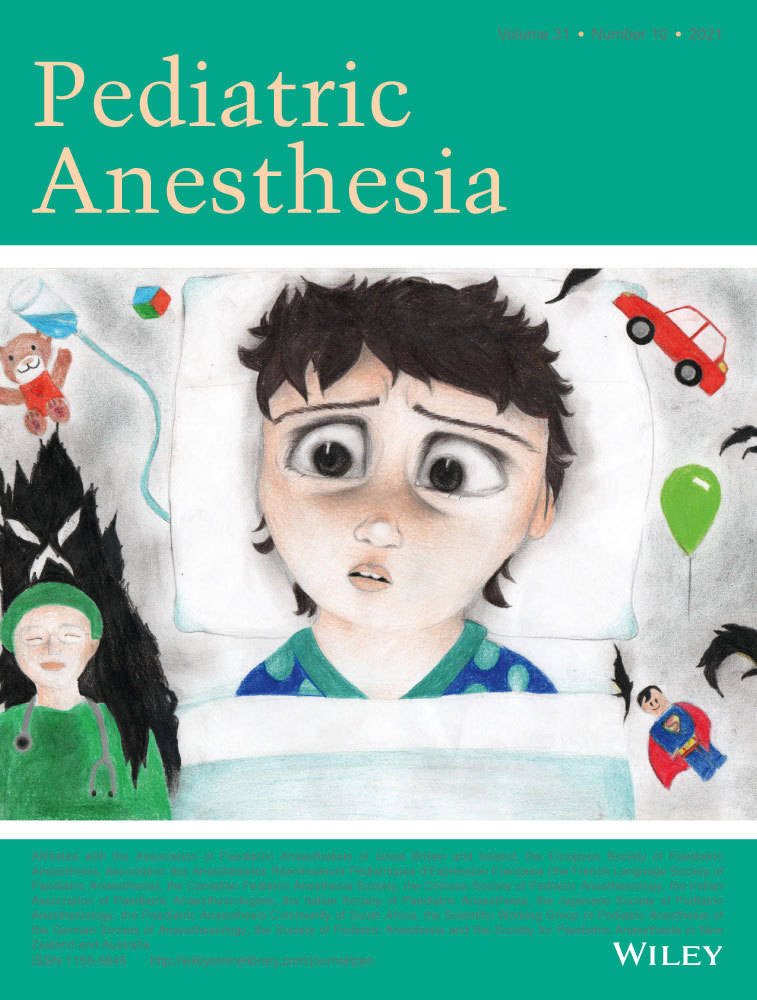Behavioral changes after hospital discharge in preschool children experiencing emergence delirium after general anesthesia: A prospective observational study
Jonghae Kim, Sung Hye Byun two authors equally contributed to this work.
Abstract
Background
Emergence delirium is well known as early postoperative behavioral change after general anesthesia. However, it is unclear whether children with emergence delirium have negative behavioral changes after hospital discharge.
Aim
This observational study investigated the association between emergence delirium and posthospital behavioral changes.
Methods
One-hundred preschoolers aged 2–7 years undergoing elective surgery were enrolled in 2 tertiary university hospitals. Preoperative anxiety level was assessed using modified Yale preoperative anxiety scale. Emergence delirium was defined via pediatric anesthesia emergence delirium score ≥12 at any time in the recovery room. We divided the delirium score into a delirium-specific score (the sum of the first 3 items: eye contact, purposeful movement, and awareness of surrounding) and a pain-related score (the sum of the last 2 items: restlessness and inconsolability). High delirium scores represent severe emergence delirium. Posthospital behavioral changes were assessed by a change in Child Behavior Checklist 1.5–5 scores before and 1 week after surgery. The primary outcome was the total behavior checklist scores 1 week after surgery. Multiple linear regression was performed to identify risk factors for posthospital behavioral changes.
Results
Children with emergence delirium (n = 58) had higher postoperative behavior checklist scores than children without emergence delirium (n = 42) [mean (SD), 22.8 (17.5) vs. 14.0 (12.1); mean difference (95% CI), 8.8 (1.5–16.2)]. Increases in preoperative anxiety level [regression coefficient (b) (95% CI) =0.241 (0.126–0.356)] and peak delirium-specific score [b = 0.789 (0.137–1.442)] were associated with an increase in behavior checklist score 1 week after surgery, while pain-related score, type of surgery, premedication, and age were not.
Conclusion
Children with emergence delirium developed more severe behavior changes 1 week after surgery than those without emergence delirium. High preoperative anxiety level and emergence delirium scores were associated with posthospital behavioral changes.
CONFLICT OF INTEREST
None to declare.
Open Research
DATA AVAILABILITY STATEMENT
The data that support the findings of this study are available from the corresponding author upon reasonable request.




